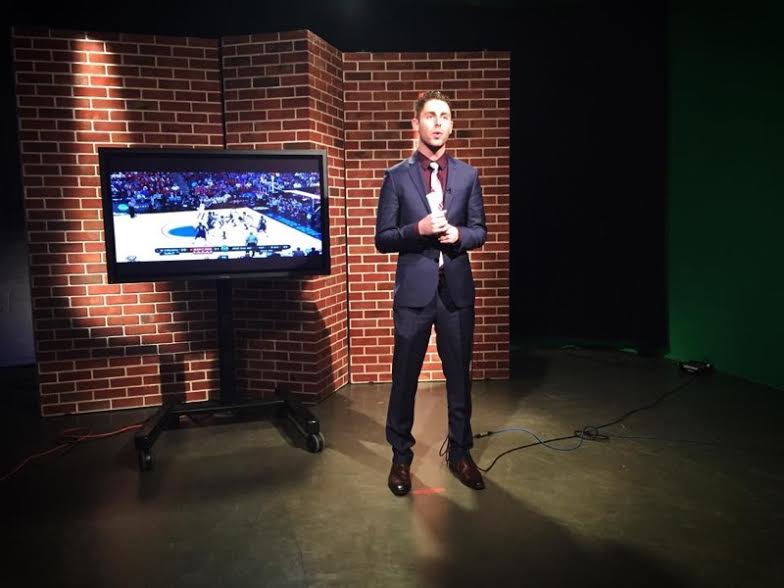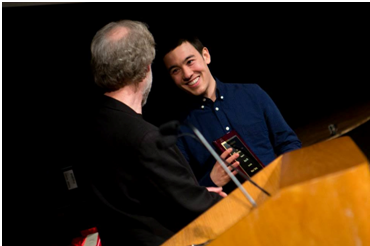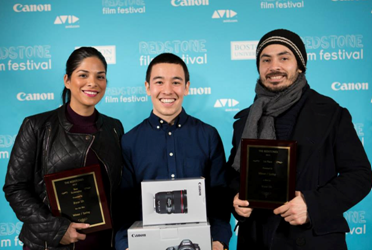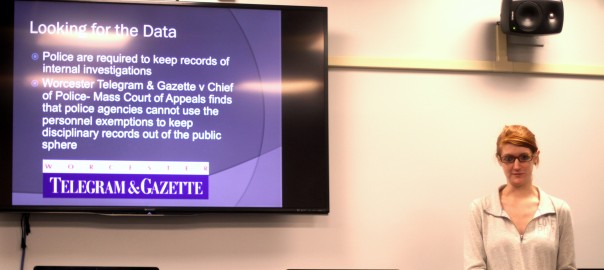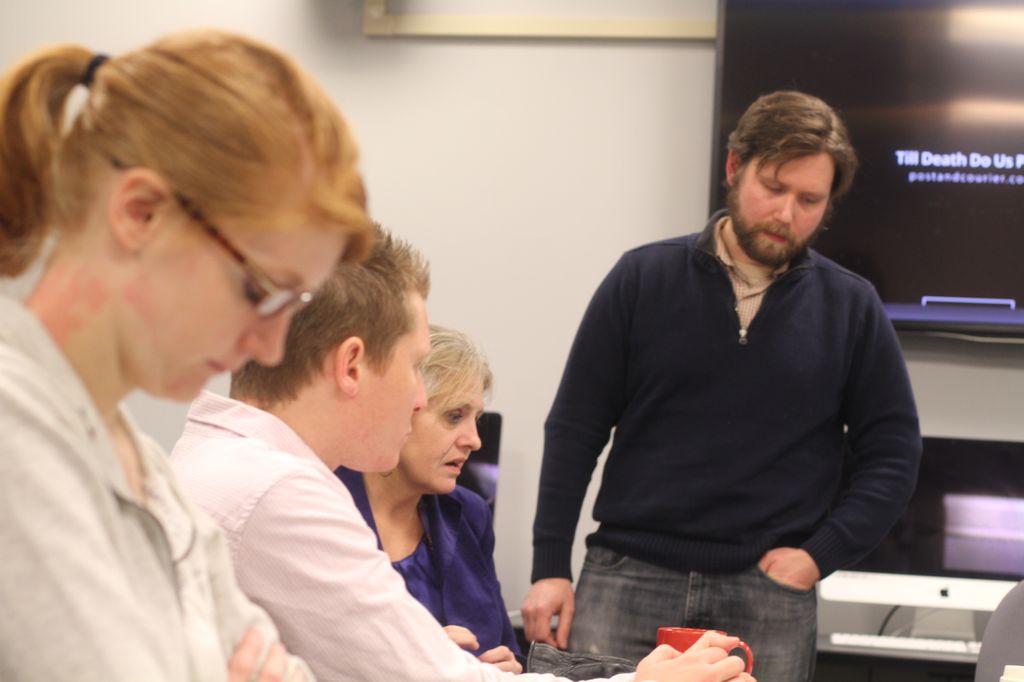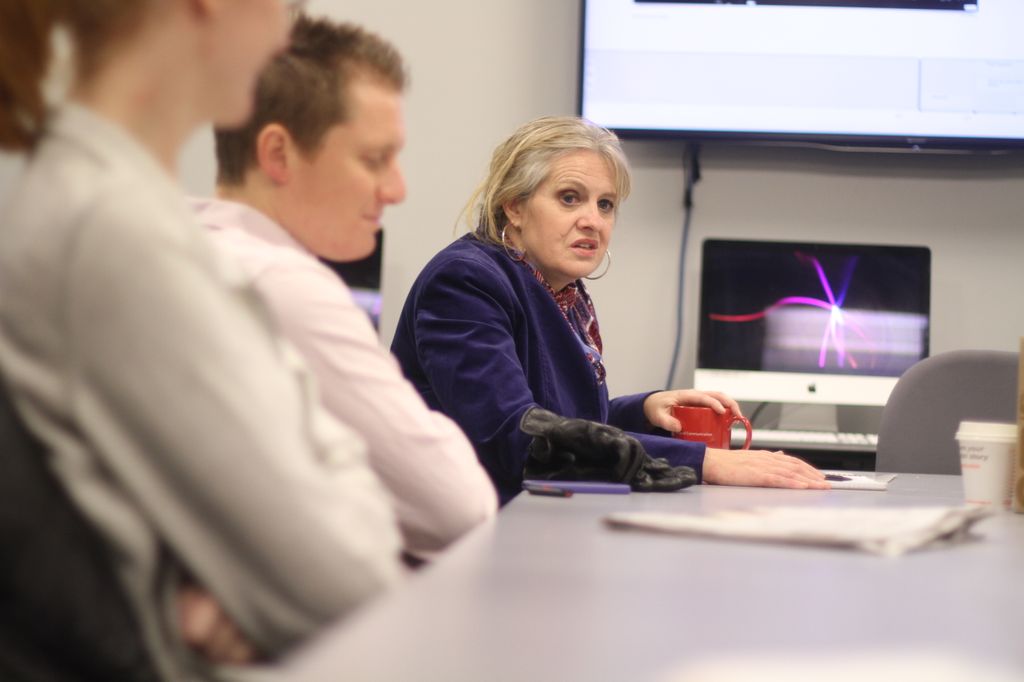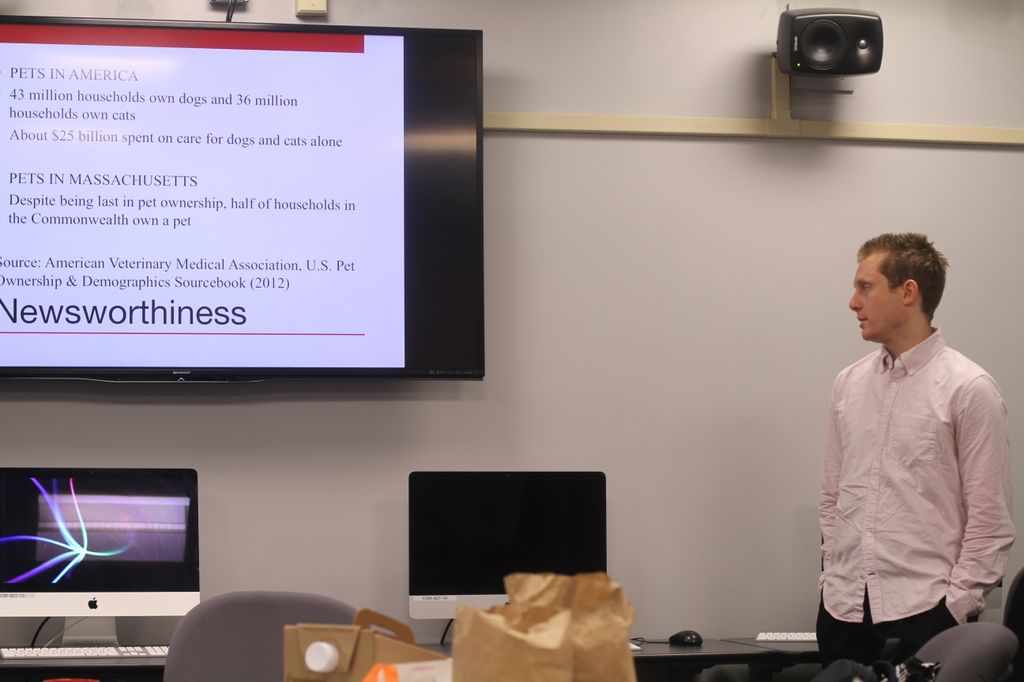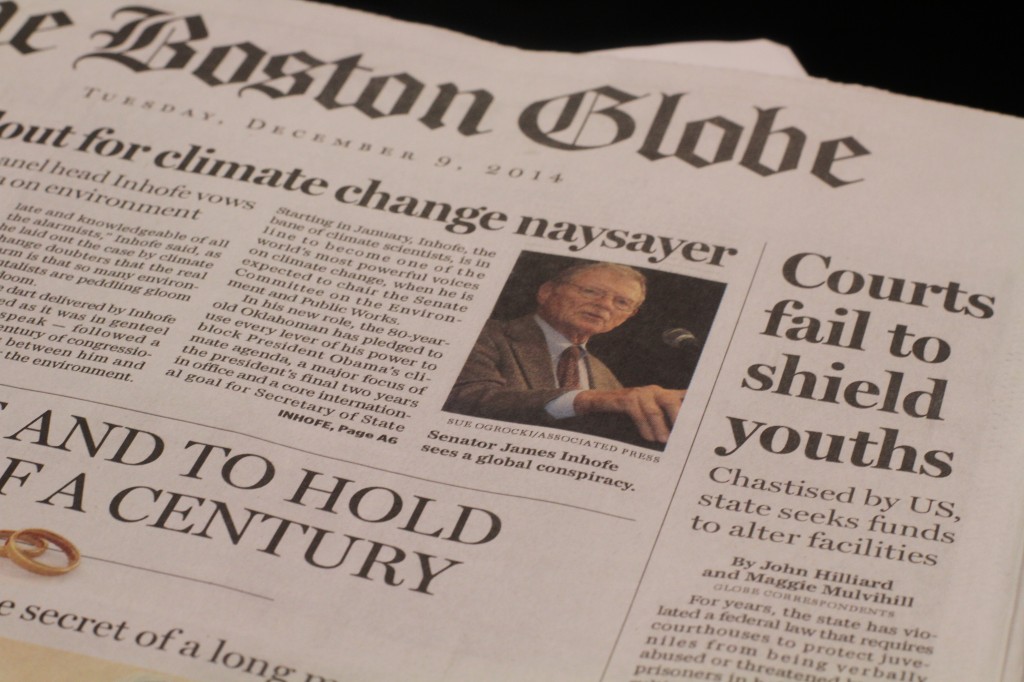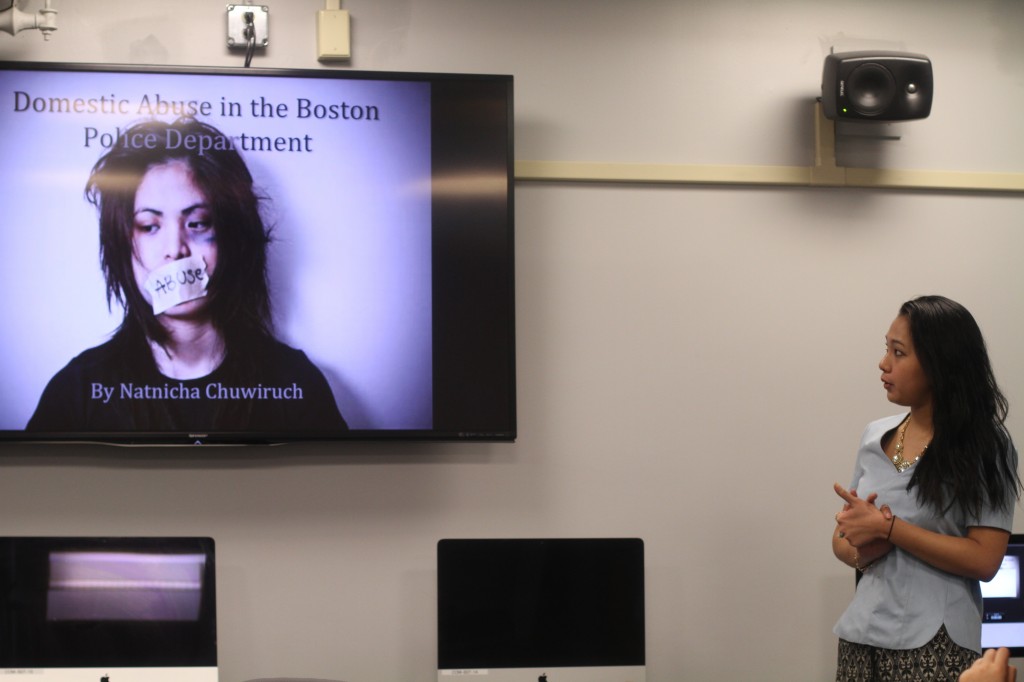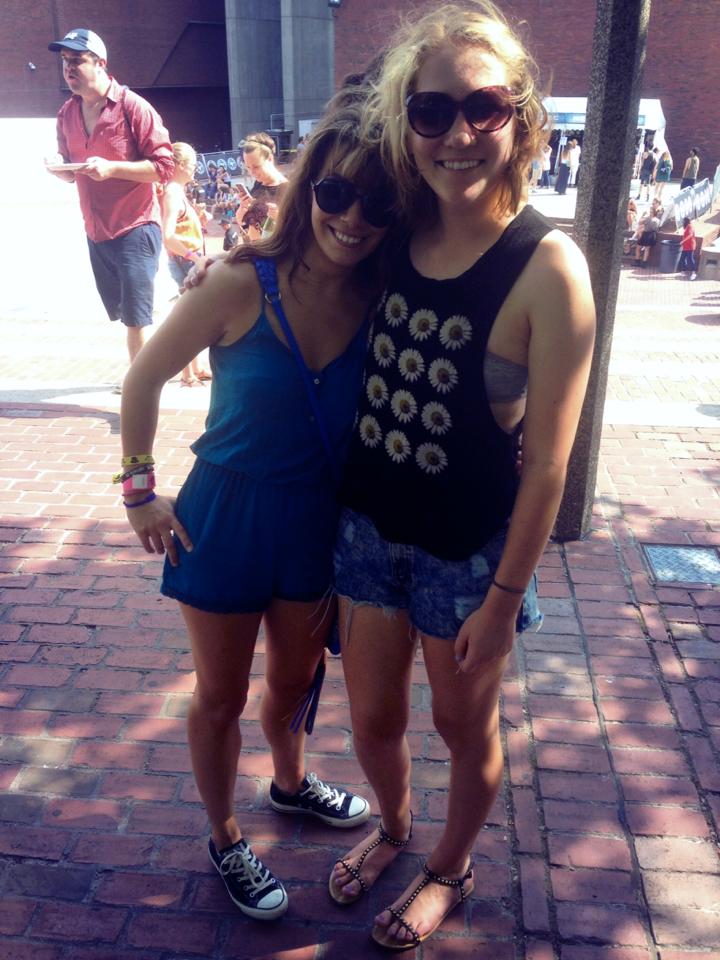By Gina Kim
MS Journalism ’16
BU College of Communication
The last weekend of March was quite a busy one for COM—what with the three-day long Narrative Conference going on at Boston University with so many amazing keynote speakers, journalists and storytellers from all over to sharing their experiences from the industry.
Over at the COM building on Saturday, March 28, the graduate program also had a panel of five keynote speakers, journalists and storytellers of their own at the Accepted Prospective Students Day, except the only difference was, it featured COM’s own current graduate students.
The panel of chosen students answered questions from the audience and talked about their current experiences at COM, why they chose the program, what the competition is like and how to manage the workload.
Alex Hirsch, (Sports Broadcast ’16) was one of the students whom the professors recommended be chosen to participate in the Q and A session panel. Just a year ago, Alex had been one of the many prospective students still trying to decide his future and whether or not his destiny lied with COM.
“It felt pretty cool being on the other side of the podium for once,” Alex said. “You’re always wondering whether you’re actually succeeding or doing your best work here at COM, but knowing that the professors recommend you to be on that panel is further confirmation that you’re on the right path in life, and that you’re doing what you’re supposed to do. It’s validation that I’m working towards the right goal and I’m right here where I belong.”
He also mentioned that although the Q and A session was for him to inform interested students, it was a learning lesson for him as well.
“I didn’t do journalism before COM and I realized that while I was answering questions, I was representing all those people who are coming to school without any journalism background either. I was there to explain that just because I didn’t have undergraduate experience in it, doesn’t mean that it can’t be done,” he said.
Hanae Armitage, (Science Journalism ’15) was also chosen to be on the distinguished panel of students to represent her field and help prospective students consider COM to be their future home.
“It was definitely a great experience honestly,” she said. “I remember having a ton of questions and being in their position last year, and it was great to share my own experience with them. Especially even more so now because I can confirm that I absolutely love it here, and I made the right choice.”
For Armitage, it wasn’t tough to gush about the program and encourage students to come experience COM for themselves. “Everyone here I’ve met in the science journalism field has been super supportive of incoming journalists which I appreciate. So I felt like I really wanted to relay that attitude to the new students too,” she said.
Feel like you’re at another turning point in life with a fork stuck in the road? Time grabbing you by the wrist directing you where to go? You heard it here first. COM is definitely the path that can’t be beat!
